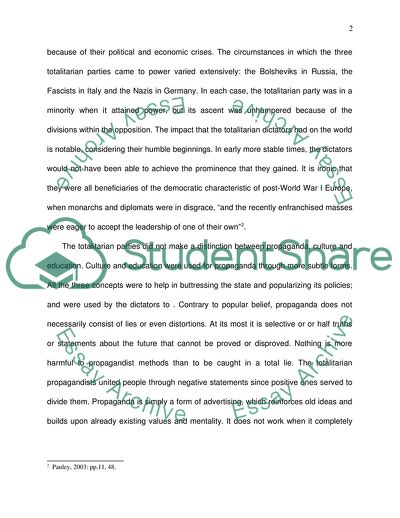Cite this document
(Power of European Dictators Hitler, Stalin, Mussolini in WWII Term Paper, n.d.)
Power of European Dictators Hitler, Stalin, Mussolini in WWII Term Paper. Retrieved from https://studentshare.org/history/1720597-how-did-european-dictators-acquire-and-maintain-power-in-wwii-hitler-mussolini-stalin
Power of European Dictators Hitler, Stalin, Mussolini in WWII Term Paper. Retrieved from https://studentshare.org/history/1720597-how-did-european-dictators-acquire-and-maintain-power-in-wwii-hitler-mussolini-stalin
(Power of European Dictators Hitler, Stalin, Mussolini in WWII Term Paper)
Power of European Dictators Hitler, Stalin, Mussolini in WWII Term Paper. https://studentshare.org/history/1720597-how-did-european-dictators-acquire-and-maintain-power-in-wwii-hitler-mussolini-stalin.
Power of European Dictators Hitler, Stalin, Mussolini in WWII Term Paper. https://studentshare.org/history/1720597-how-did-european-dictators-acquire-and-maintain-power-in-wwii-hitler-mussolini-stalin.
“Power of European Dictators Hitler, Stalin, Mussolini in WWII Term Paper”. https://studentshare.org/history/1720597-how-did-european-dictators-acquire-and-maintain-power-in-wwii-hitler-mussolini-stalin.


